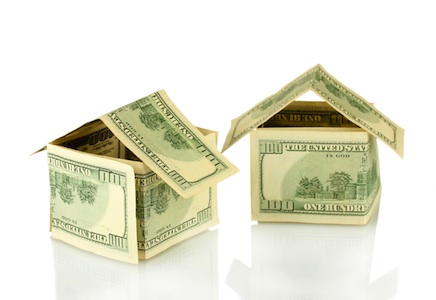Home prices continued their steady climb in August, with the 10- and 20-city composites produced by the S&P/Case Shiller Home Price Indices showing average price growth of 12.8% year-over-year.
Looking at a monthly basis, the 10- and 20-city composites increased 1.3% in August, with Las Vegas rising 2.9%, the highest growth rate since August 2004.
Detroit and Los Angeles ranked closely behind with price gains of 2%.
In comparison to July 2013, the annual growth rates accelerated for both composites and 14 cities.
"Both Composites showed their highest annual increases since February 2006. All 20 cities reported positive year-over-year returns. Thirteen cities posted double-digit annual gains. Las Vegas and California continue to impress with year-over-year increases of over 20%," said David Blitzer, chairman of the Index Committee at S&P Dow Jones Indices.
"Denver and Phoenix posted 20 consecutive annual increases; Miami and Minneapolis 19," Blitzer added. "Despite showing 26 consecutive annual gains, Detroit remains the only city below its January 2000 index level."
While all 20 cities recorded monthly gains in August, most cities showed deceleration when compared to July.
Seattle was at the bottom of the list with a return of 0.5%. San Francisco has been losing speed month-over-month, with prices increasing 4.9% in April 2013 and only 0.9% in August 2013.
Meanwhile, 14 cities showed year-over-year rate price acceleration. Las Vegas reigned with an annual growth rate of 29.2%—the highest growth point reached since March 2005.
Both Denver and San Francisco reported their highest growth rates since August 2001 and March 2001, respectively. And while Dallas did not hit double-digit returns, the city posted its highest annual gain since 2000.
"The monthly percentage changes for the 20-City composite show the peak rate of gain in home prices was last April. Since then home prices continued to rise, but at a slower pace each month," Blitzer said. "This month 16 cities reported smaller gains in August compared to July. Recent increases in mortgage rates and fewer mortgage applications are two factors in these shifts."
"Home-price appreciation is a plus of course for homeowner wealth but higher prices are a big negative for home sales, a factor that is apparent in a run of home sales data including yesterday's very weak pending home sales report," analysts with Econoday concluded.





